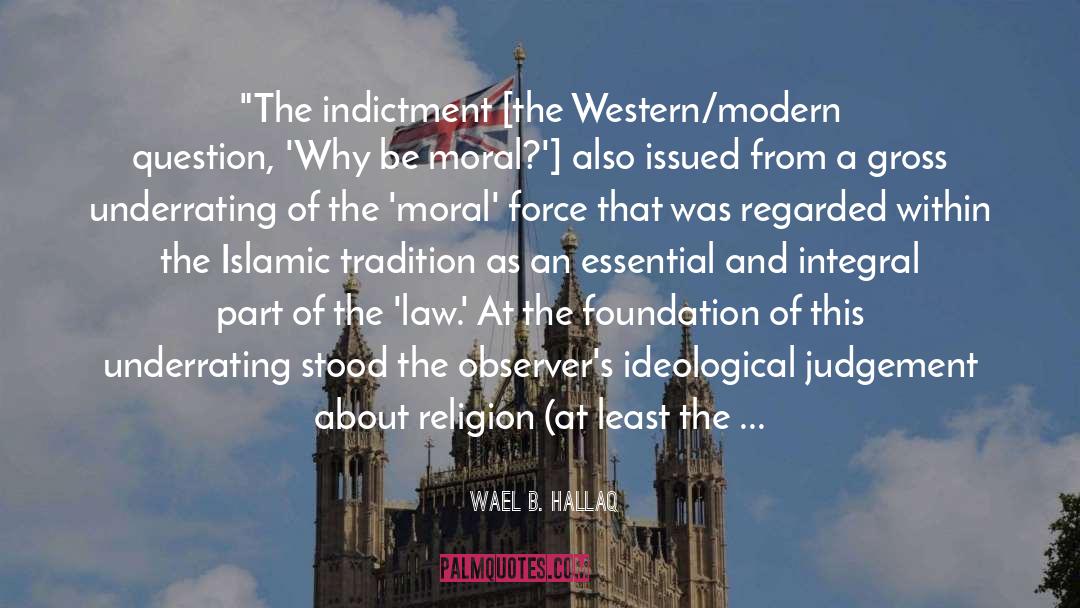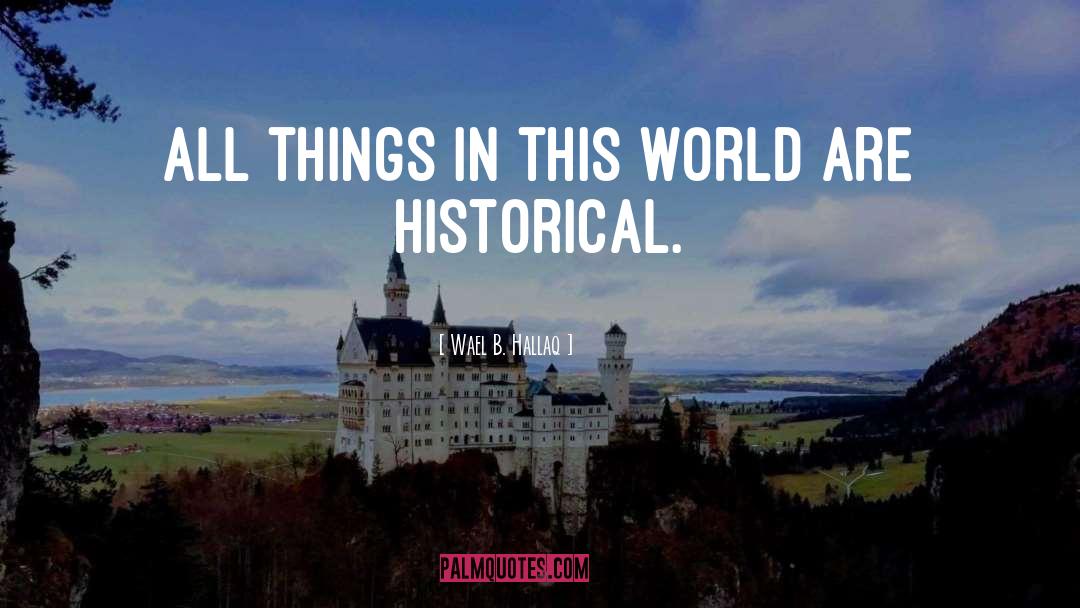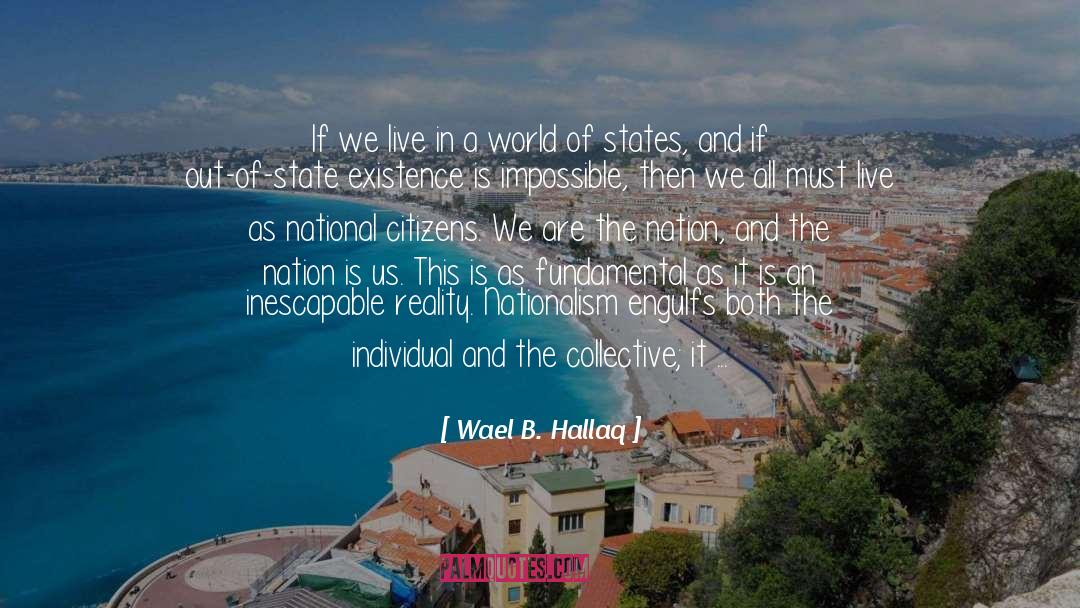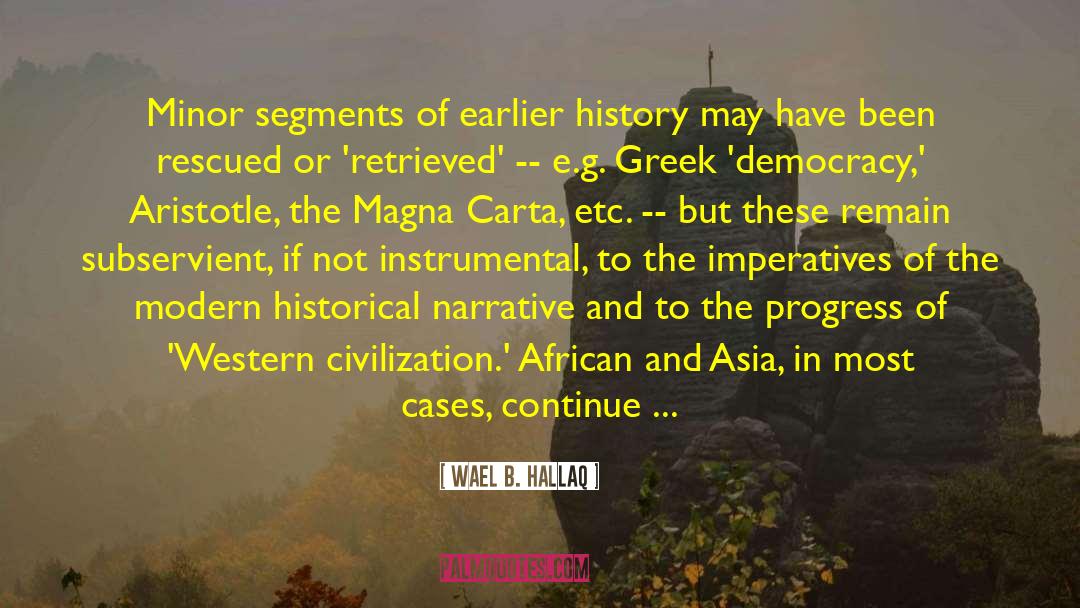Wael B. Hallaq Famous Quotes
Reading Wael B. Hallaq quotes, download and share images of famous quotes by Wael B. Hallaq. Righ click to see or save pictures of Wael B. Hallaq quotes that you can use as your wallpaper for free.
"The indictment [the Western/modern question, 'Why be moral?'] also issued from a gross underrating of the 'moral' force that was regarded within the Islamic tradition as an essential and integral part of the 'law.' At the foundation of this underrating stood the observer's ideological judgement about religion (at least the Islamic religion), a judgment of repugnance, especially when religion as a moral and theological force is seen to be fused with law. The judgement, in other words, undercuts a proper apprehension of the role of modernity as a legal form, of its power and force. Historical evidence [in modernity/Enlightenment thought and its intellectual progeny] was thus made to fit into what makes sense to us, not what made sense to a culture that defined itself -- systematically, teleologically, and existentially -- in different terms. This entrenched repugnance for the religious -- at least in this case to the 'Islamic' in Muslim societies -- amounted, in legal terms, to the foreclosure of the possibility of considering the force of the moral within the realm of the legal, and vice versa. Theistic teleology, eschatology, and socially grounded moral gain, status, honor, shame, and much else of a similar type were reduced in importance, if not totally set aside, in favor of other explanations that 'fit better' within our preferred, but distinctively modern, countermoral systems of value. History was brought down to us, to the epistemological here and now, according to our

All things in this world are historical.

If we live in a world of states, and if out-of-state existence is impossible, then we all must live as national citizens. We are the nation, and the nation is us. This is as fundamental as it is an inescapable reality. Nationalism engulfs both the individual and the collective; it produces the 'I' and 'We' dialectically and separately. Not only does nationalism produce the community and its individual members: it is itself the community and its realized individual subjects, for without these there is no nationalism.
"Leading sociologists and philosophers have emphasized the pervasive presence of the community in individual consciousnesses, where the social bond is an essential part of the self. It is not only that the 'I' is a member of the 'We,' but, more importantly, that the 'We' is a necessary member of the 'I.' It is an axiom of sociological theory, writes Scheler, that all human knowledge 'precedes levels of self-contagiousness of one's self-value. There is no "I" without "We." The "We" is filled with contents prior to the "I." ' Likewise, Mannheim emphasizes ideas and thought structures as functions of social relations that exist within the group, excluding the possibility of any ideas arising independently of socially shared meanings. The social reality of nationalism not only generates meanings but is itself a 'context of meaning'; hence our insistence that nationalism constitutes and is constituted by the community as a social order. 'It is senseless to p

Minor segments of earlier history may have been rescued or 'retrieved' -- e.g. Greek 'democracy,' Aristotle, the Magna Carta, etc. -- but these remain subservient, if not instrumental, to the imperatives of the modern historical narrative and to the progress of 'Western civilization.' African and Asia, in most cases, continue to struggle in order to catch up, in the process not only forgoeing the privilege of drawing on their own traditions and historical experiences that shaped who they were and, partly, who they have become but also letting themselves be drawn into devastating wars, poverty, disease and the destruction of their natural environment. Modernity, whose hegemonic discourse is determined by the institutions and intellectuals of the powerful modern West, has not offered a fair shake to two-thirds of the world's population, who have lost their history and, with it, their organic ways of existence.

